Leo den Hartog: “Make better use of minerals in pig manure”
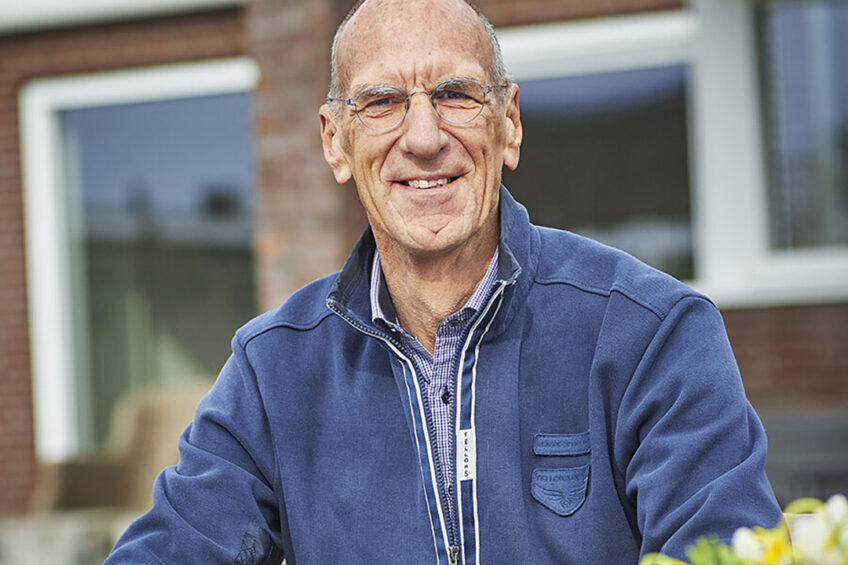
Nitrogen emissions are at the heart of a fierce debate about the future of livestock production in the densely populated Netherlands. Former researcher Leo den Hartog advocates a better valorisation of pig manure and closing cycles further. “The importance of innovation remains, even if the herd is shrinking.”
Nitrogen emissions have become a major political issue in the Netherlands recently. In many places throughout the country, emission levels are measured that are at odds with European legislation. For years, the country made use of regulatory pathways so nitrogen emissions would not impede development. Yet, in May 2019 the country’s highest court judged these solutions insufficient. Emission levels would have to come down, period.
Ever since, 2 opposing political views have formed. One advocates a protection of the environment, a radical nitrogen emission reduction, and as a consequence a strong reduction of livestock numbers. The other prefers to see a more gradual road that boasts cooperation and innovation.
Several fractions, with stable levels
Most of the nitrogen ends up in the environment through manure. Part of the total amount of pig manure is and will continue to be used on the land in an unprocessed form. That will not change, says former Nutreco research director Prof Leo den Hartog. Nevertheless, he points out that there is a fairly large group of pig farmers who realise that they have to do something with manure in the long term. Obviously, it contains biogas. The utilisation of minerals in pig manure, however, could be better. Emissions could be reduced if manure is broken down into several fractions, with stable levels.
Prioritising pig health
Leo den Hartog says pig health should be prioritised when it comes to a future-proof sector. Closing cycles as much as possible and thus limiting mineral losses is also an important theme for pig farmers. “There is no phosphate deficiency at all. It only leaks to places where you cannot use it, such as oceans. But phosphate itself is not finite and the amount does not decrease.” Partly for that reason, Prof Den Hartog advocates closing cycles to reuse minerals from pig manure.
The story of an imminent phosphate shortage is not new. Why does the transition to circular farming take so much time?
“A lot is possible, technically. However, a swine producer wants certainty about the costs and what he is committing to when he tries something new. The best thing would be if the recovery of minerals from pig manure would coincide with the dealing with human waste. The technology for processing human waste streams and livestock farming do not differ that much. In essence, the human waste sector, as the last link in the chain, is the largest mineral leak. It would therefore be logical for the human sector and livestock farming to conduct research together and invest in processing waste streams and recovering minerals.”
Is more research still necessary?
“There are various decades-old techniques. Think of filtration and reverse osmosis. We also known much about biogas production. There is also a lot of research going on in pig farming. But my impression is that research in the field of manure processing could use a boost. Research in that area has passed its peak.”
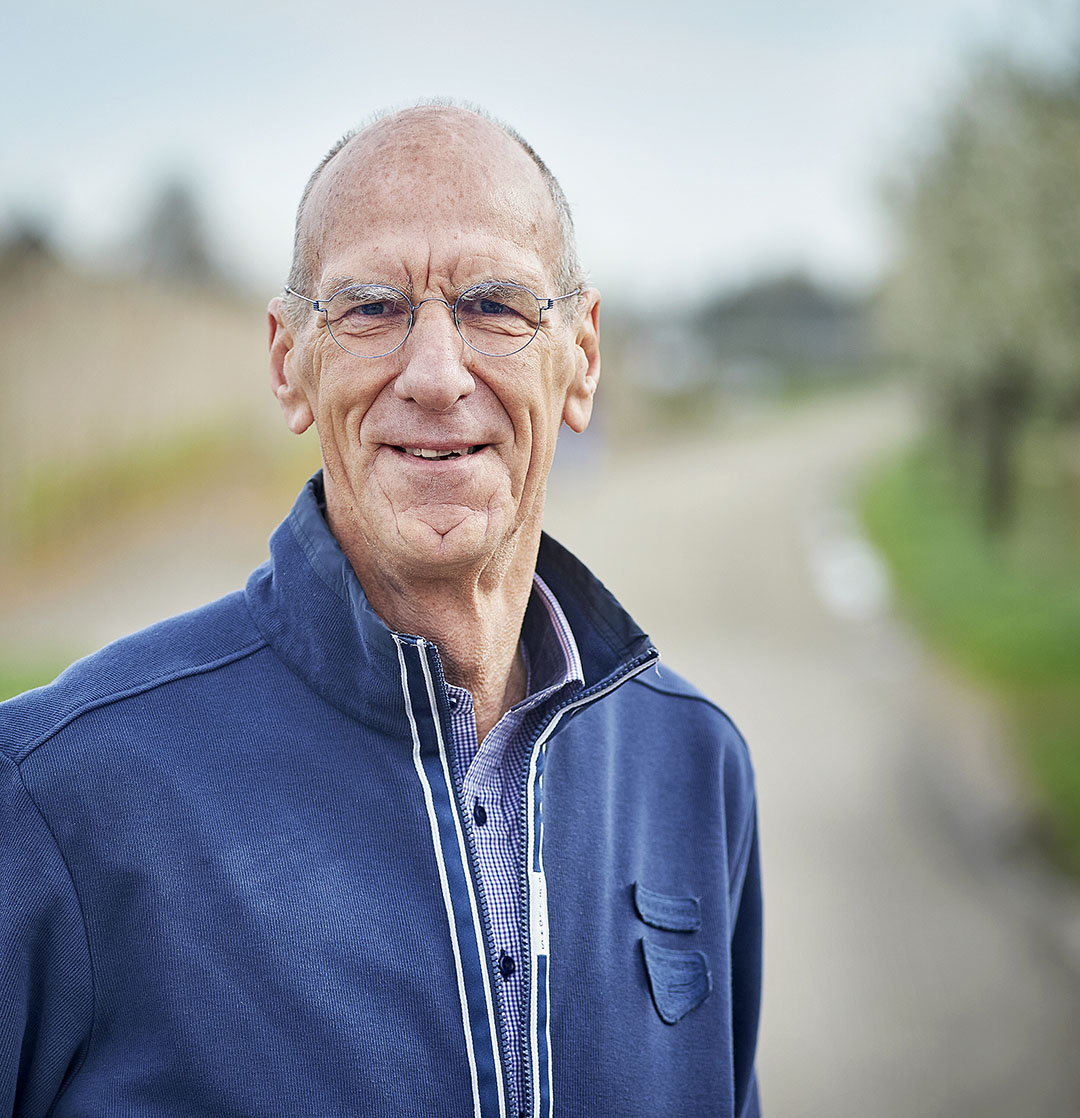 Dutch manure production is declining. Does that stimulate innovation?
Dutch manure production is declining. Does that stimulate innovation?
“The herd is indeed shrinking. Nevertheless, there will always be a need for manure processing and innovations in that area. Some techniques may also need an update. So, the importance of innovation remains. Water quality must also improve, and emissions must decrease. In addition, users of animal manure need products with known contents and with a constant quality. Research in this field therefore remains relevant and worthwhile.”
Does manure processing always mean adding costs?
“That is not necessarily the case. Look at waste disposal. Many recycled products and bring in money again. Slaughterhouse by-products sometimes yield more than the main meat product. Initially, processing waste streams and reusing minerals in pig manure may be more expensive than doing nothing. This will change. The Netherlands have a professional pig farming sector, with a sufficient scale to carry this out in a commercially viable manner. This has also succeeded in the poultry sector. It took a long time to gather sufficient manure in this sector, but disposal is now well organised. By processing more manure and partly selling it outside of the Dutch agriculture, the price for other manure may decrease as well. Pig manure also contains a lot of water. It is therefore logical to separate the thick from the thin fraction at an early stage.”
In livestock farming, you need a few trendsetters who come up with larger initiatives to make better use of minerals
Is separating manure at source the best option?
“It is very good that farmers are looking into this. In livestock farming, you need a few trendsetters who come up with larger initiatives to make better use of minerals. At the same time, smaller initiatives are emerging. These focus on, for example, separating manure at the source. It is good that not everyone does the same thing. There are still people who are actively preparing for the future. They show commitment, insight and initiative. The latter is the most difficult. Especially during this time with so much uncertainty.”
Is there an urgent need for clarity from the government?
“Yes, absolutely. If you have to invest a lot for manure, I can imagine that this will keep you awake at night. The government must formulate clear goals for manure and emissions, just as it did with antibiotics 15 years ago. A halving of the use was requested, and the livestock industry now uses 77% fewer antibiotics than in 2009. We are the only country in the world where no medicated feed is provided. Provided there is clarity, something like this is possible. By setting goals, everyone knows where they stand. You either respond to that, decide to do things differently or even stop. All of these options are fine, and in the end every livestock farmer will benefit from it. The policy inconsistency is incredibly annoying for farmers.”
Is the current uncertainty disastrous for the development of livestock farming?
“Yes, farmers want clarity. The second thing farmers want is a level playing field. It feels very unfair if a trade agreement stipulates that a set tonnage of South American meat per year can come to Europe, because we can then export cars. The same applies to allowing free import of agricultural products from Ukraine. In those countries, the regulations in the field of animal welfare and the use of tools are much broader than in the EU.”
It is strange that there are sufficient amounts of minerals available in the manure in the Netherlands, but that we are not allowed to use them all and have to buy artificial fertiliser
One question about regulations. After more than 10 years, there is still a lack of clarity regarding the use of artificial fertiliser substitutes from animal manure or digestate. How unfortunate is that?
“Very unfortunate. It is precisely at this point that steps can be taken in the field of a circular economy. It is strange that there are sufficient amounts of minerals available in the manure in the Netherlands, but that we cannot use them all and have to buy artificial fertiliser. Replacing part of the artificial fertiliser with nitrogen-containing fertilisers from animal manure (the official term is renure; ed.) reduces greenhouse gas emissions and stimulates manure processing. Fertiliser will probably become cheaper again, but the price will probably not return to the past level.”
Let us go back to pig manure. Should we ‘de-gas’ all manure in the long term?
“It is good to extract biogas from most of the manure. Provided that it is well organised, with sufficient scale. It is a good first step.”
Fewer animals is not necessary, but more innovation is your motto?
“The size of livestock farming in the Netherlands is a result of set frameworks, and should not serve as a starting point. It is too simple to say: fewer animals means less manure and fewer emissions. As indicated earlier, the government must formulate clear objectives and provide clarity. Farmers can continue on that basis. As a sector, we do not have to be gloomy either. There is a future with pig farming and pig farming has a future. I am convinced of that.”
 Beheer
Beheer
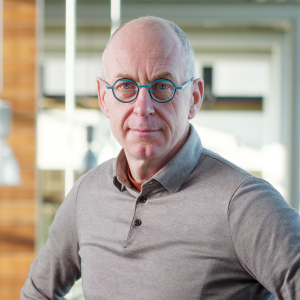
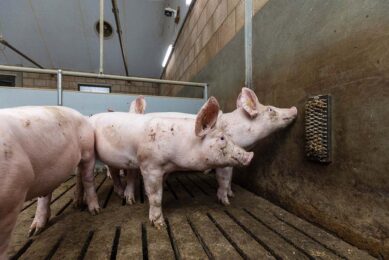

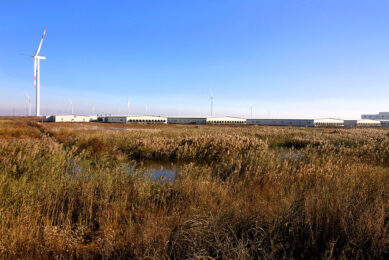




 WP Admin
WP Admin  Bewerk bericht
Bewerk bericht